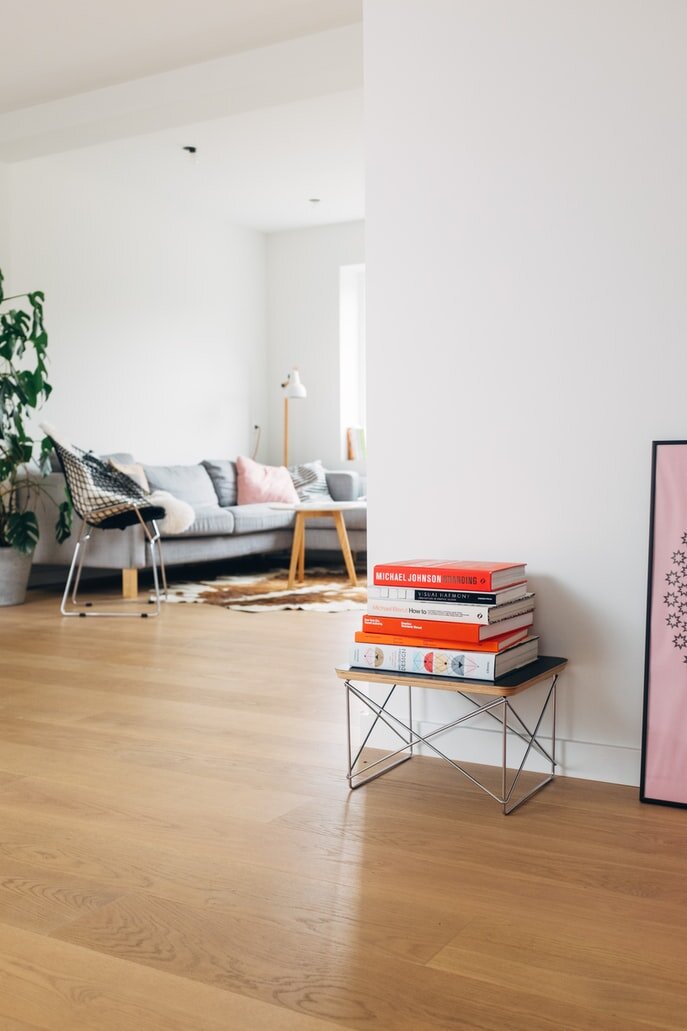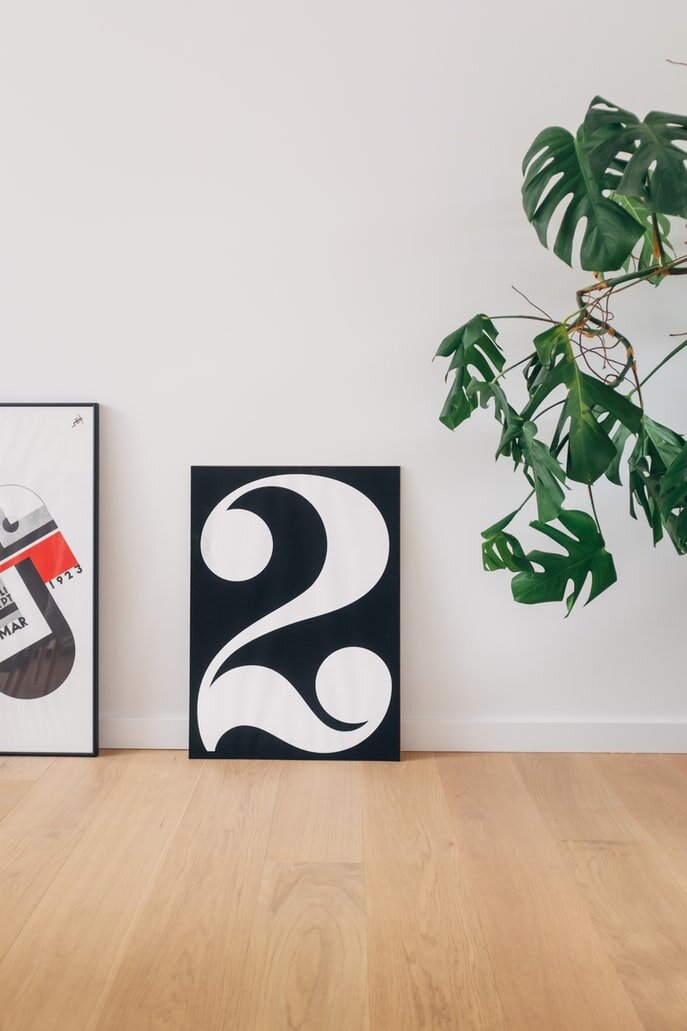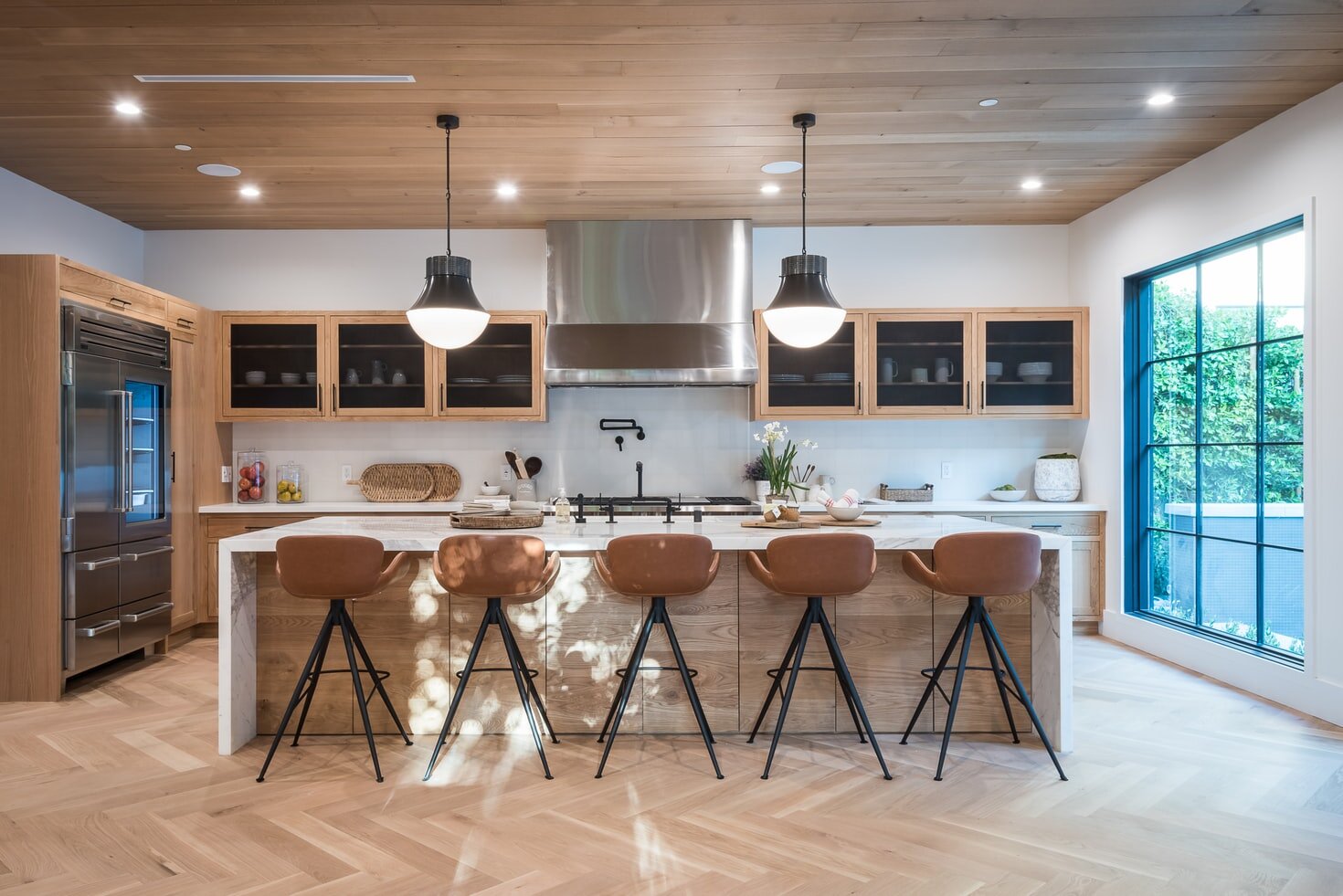How to mix and match wood tones like a pro
I’ve been asked this question quite a few times now, and it is a tricky one. Firstly, if you’re wondering “can I mix wood tones in a room?” - the answer is yes. But how to do it? There’s a number of tips you can follow to help make it look intentional and effortless.
Start with a dominant wood
The dominant wood tone will usually be the floors if they are wooden.
Firstly, settle on a dominant wood tone, which you will then use to base your additional wood tones on. If you have wood floors, then these will automatically become your dominant wood. Otherwise, it might be the largest piece of furniture or built-ins.
Introduce contrast
A high contrast between the wood floors and cabinets has been used in this kitchen.
Next you can introduce some contrast with additional wood tones - go for no more than 3. For example; if your dominant wood is a light ash or medium oak, then introduce a darker wood to add some intentional contrast. Pay attention to the undertone of the wood; if it’s warm then try to match with other warm toned wood, likewise if it’s cool then match with other cool toned wood.
This kitchen uses warm toned wood throughout.
Use repetition
Repeat tones of wood throughout; like in this desk and chair.
Repetition is one of the best tools in interior design to bring a sense of cohesion to a space. This is the idea of repeating elements like colour, pattern, texture, and shape. To make your mix of woods cohesive, make sure that whatever wood tones you are introducing, they are featured more than once (at least twice) elsewhere in the room.
Use rugs and fabrics as a barrier
I used a rug in this living room underneath the sideboard as a barrier between it and the floor.
Finally, I like to use rugs and other fabric as a barrier or buffer between two wood tones. This could be in the form of a rug underneath a table and dining chairs, acting as a barrier between the wood tone of the floor. This is particularly useful if for whatever reason you have two wood tones that are different but don’t have much contrast; the rug breaking up the two wood tones help to stop it from appearing jarring.
Hopefully that’s shown how you can mix wood tones to create a cohesive and intentional looking space.
If you’d like my help with your next project, check out my services to see how we can work together. If you’ve enjoyed this blog, don’t forget to subscribe below to receive my new post in your inbox every Sunday.







